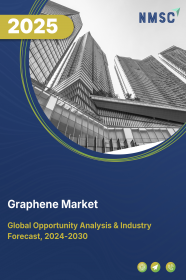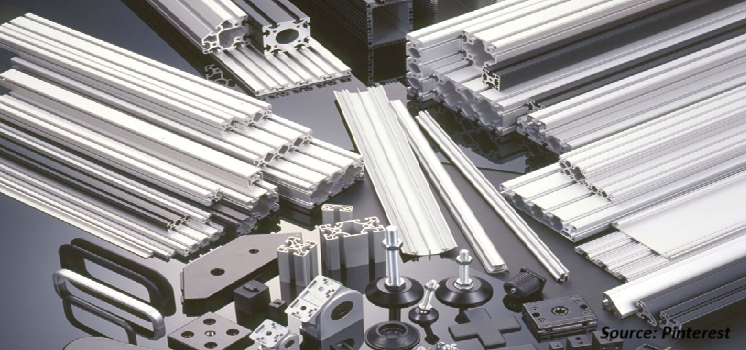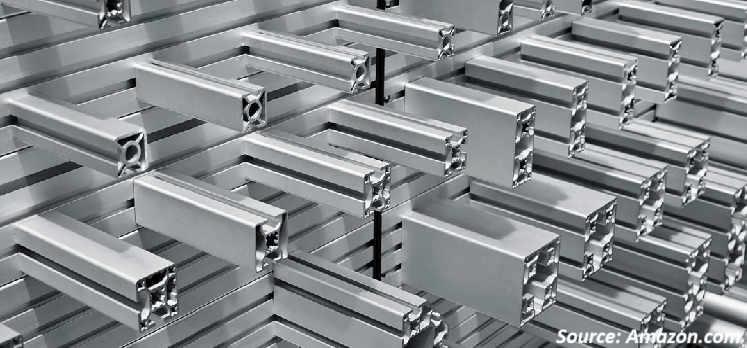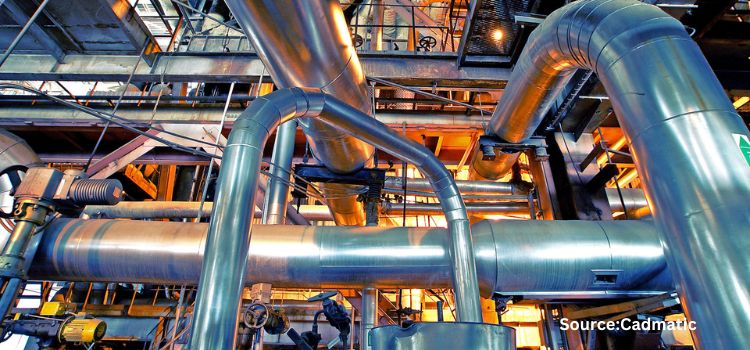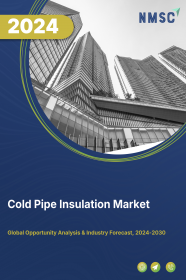
Cold Pipe Insulation Market by Material Type (Fiberglass, Foam Glass, Elastomeric Foam, Polyurethane Foam, Polystyrene Foam, Polyethylene Foam, and Rubber), by Temperature Range (up to -18°C, -19°C to -180°C, -181°C to -210°C, and Less Than -210°C), by Application (HVAC, Refrigeration, and Cryogenic), and by End-User Industry (Oil & Gas, Chemicals, Food Processing, Pharmaceuticals, and Others) – Global Opportunity Analysis and Industry Forecast, 2023–2030
Industry: Materials and Chemical | Publish Date: 30-Nov-2024 | No of Pages: 333 | No. of Tables: 241 | No. of Figures: 195 | Format: PDF | Report Code : MC598
US Tariff Impact on Cold Pipe Insulation Market
Trump Tariffs Are Reshaping Global Business
Market Overview:
The global Cold Pipe Insulation Market size was valued at USD 5.92 billion in 2022, and is predicted to reach USD 10.08 billion by 2030, with a CAGR of 6.0% from 2023 to 2030. Cold pipe insulation refers to the process of covering pipes that carry cold substances or fluids with a material to prevent heat transfer. The purpose of this insulation is to keep the cold fluid inside the pipe at a low temperature by minimizing heat gain from the surrounding environment.
Cold pipe insulation typically uses materials such as foam, fiberglass, or rubber. These materials create a barrier that helps maintain the temperature of the cold fluid, preventing it from warming up as it travels through the pipe. Insulating the pipe improves energy efficiency, as less energy is required to keep the fluid cold. Additionally, cold pipe insulation helps prevent condensation on the pipe's surface, reducing the risk of corrosion and damage to the surrounding area.
Growing Government Initiative for Energy-Efficient Solutions
Increasing government initiatives and stringent regulations focused on energy efficiency propel the growth of the cold pipe insulation market. Governments worldwide are implementing policies, regulations, and financial incentives to encourage businesses to adopt energy-efficient practices and meet specific standards. These initiatives drive the demand for effective cold pipe insulation solutions as businesses aim to reduce energy consumption, lower costs, and contribute to environmental sustainability.
Rapidly Growing Urbanization & Industrialization
The expanding trends of urbanization and industrialization on a global scale strongly influence the growth of the cold pipe insulation market. As urban areas continue to expand and industrial activities thrive, the demand for various infrastructure and facilities increases. This includes the need for efficient heating, ventilation, and air conditioning (HVAC) systems and the demand for insulation solutions to minimize energy loss and optimize thermal efficiency.
The rapid growth of urban centers and the continuous development of industries create a significant market opportunity for cold pipe insulation. This is due to businesses and infrastructure developers seeking effective solutions to ensure energy efficiency, reduce operational costs, and promote sustainable practices.
Growing Oil & Gas Industry Across the Globe
The growing global oil and gas industry leads to the growth of the cold pipe insulation market. As the demand for oil and gas continues to rise, driven by factors such as population growth, industrialization, and increasing energy consumption, there is a corresponding need for effective insulation solutions in this sector.
Cold pipe insulation plays a crucial role in maintaining the integrity and efficiency of oil and gas infrastructure, including pipelines, tanks, and equipment. Insulating these components minimizes energy loss, preventing heat transfer and ensuring optimal operational performance.
Moreover, insulation helps mitigate risks associated with temperature fluctuations, corrosion, and condensation, enhancing the overall safety and longevity of oil and gas facilities. As the oil and gas industry expands globally, the demand for cold pipe insulation solutions is anticipated to grow steadily to meet the specific needs and requirements of this dynamic sector.
The High Cost Associated with the Installation of Insulation Systems Hinders Market Growth
A considerable initial investment is required for installing insulation systems. Furthermore, the expenses associated with specialized equipment, skilled labor, and high-quality materials contribute to high costs of implementing cold pipe insulation. The ongoing maintenance and repair costs also add to the total cost. As a result, this cost barrier poses challenges, particularly for smaller businesses or projects operating within constrained budgets. This, in turn, hinders the growth prospects of the market.
Introduction of New Insulation Technologies to Create New Opportunities
The introduction of innovative insulation technologies such as aerogels and graphite powder additives is anticipated to generate significant opportunities for the growth of the cold pipe insulation market in the foreseeable future. These advanced solutions offer distinct advantages, such as lightweight and thin nature, optimized thermal performance, and cost-effectiveness.
Using aerogels and graphite powder additives as insulation materials enables efficient energy conservation while minimizing the overall thickness and weight of the insulation system. These materials not only enhance installation flexibility but also reduce material costs. As businesses and industries increasingly seek cost-effective and sustainable insulation solutions, the emergence of these new technologies is expected to drive the adoption of cold pipe insulation and drive the market growth in the coming years.
Geographical Analysis
The Asia-Pacific region holds a significant share of the cold pipe insulation market and is poised to maintain its dominance throughout the forecast period. This is attributed to several factors, including the robust growth of the oil and gas industries in this region. The oil and gas sector necessitates effective insulation solutions to ensure proper insulation during transportation and storage, driving the demand for cold pipe insulation in the Asia-Pacific region.
According to the National Investment Promotion & Facilitation Agency, India is one of the world's largest importers of liquefied natural gas, having imported 204.23 million metric tons of petroleum products and 63.9 billion cubic meters of natural gas during 2021–2022. This creates a high demand for effective cold pipe insulation solutions, which helps minimize heat transfer and reduce energy loss in storage tanks and pipelines during transportation.
Moreover, various initiatives by the government towards energy conservation and sustainable energy are creating lucrative growth opportunities for the cold pipe insulation market. For instance, the Association of Southeast Asian Nations plans to ensure a 30% energy intensity reduction by 2025 through the implementation of energy-efficient building designs, utilization of renewable energy sources, enhancements in insulation, adoption of efficient HVAC systems, and enforcement of energy efficiency codes.
On the other hand, Europe is expected to show a steady rise in the cold pipe insulation market, owing to the growing need for temperature-controlled environments in the food and beverage industries in Europe, creating a larger market for insulation materials and technologies in this region. For instance, according to the U.S. Department of Agriculture, the French food processing industry has over 15,500 food processing industries ranging from small-scale to some of the largest food companies in the world.
Additionally, the European market is propelled by large pharmaceutical industries and many R&D facilities for drug development that require a controlled environment to prevent contamination and ensure the quality and effectiveness of medicines. According to the latest report from the European Federation of Pharmaceutical Industries and Association, Germany is one of Europe's leading clinical trials and R&D investment locations, with more than 500 pharmaceutical companies operating in this region. This factor is expected to boost the growth of the cold pipe insulation industry in the region.
Competitive Landscape
Various market players operating in the cold pipe insulation industry includes, Nichias Corporation, DuPont, BASF SE, Covestro AG, 3M, L'Isolante K-Flex S.p.A., Daikin Industries Ltd., Supreme Industries Limited, Owens Corning, Armacell International S.A., Insulflex Corporation Sdn Bhd, Ematco Industrial Pte. Ltd., Superlon Holdings, Insafoam, and Dongsung Chemical Co. Ltd. These companies are adopting various strategies to remain dominant in the cold pipe insulation market.
For instance, in January 2023, Owens Corning launched its comprehensive insulation product line, including fiberglass insulation, at the 2023 International Builders' Show. These solutions can benefit the cold pipe insulation market by improving energy efficiency and reducing energy loss.
In addition, in February 2021, BASF SE launched a new industrial pipe insulation product called Slentex at its manufacturing plant in Ulsan, South Korea. Slentex is a high-performance insulation material that offers excellent thermal conductivity and can reduce energy consumption in industrial processes. The innovative product is made of aerogel, a lightweight and highly porous material with exceptional insulation properties.
Moreover, in October 2022, Armacell acquired Austroflex, an Austrian manufacturer of pre-insulated pipe systems. The acquisition aimed to enhance Armacell's product portfolio and provide its customers with a wider range of insulation solutions for district heating, industrial, and oil and gas applications.
Cold Pipe Insulation Market Key Segments
By Material Type
-
Fiberglass
-
Foam Glass
-
Elastomeric Foam
-
Polyurethane Foam
-
Polystyrene Foam
-
Polyethylene Foam
-
Rubber
By Temperature Range
-
Up To -18°C
-
-19°C To -180°C
-
-181°C To -210°C
-
Less Than -210°C
By Application
-
HVAC
-
Refrigeration
-
Cryogenic
By End-User Industry
-
Oil & Gas
-
Chemicals
-
Food Processing
-
Pharmaceuticals
-
Others
By Geography
-
North America
-
U.S.
-
Canada
-
Mexico
-
-
Europe
-
U.K.
-
Germany
-
France
-
Italy
-
Spain
-
Denmark
-
Netherlands
-
Finland
-
Sweden
-
Norway
-
Russia
-
Rest of Europe
-
-
Asia-Pacific
-
China
-
Japan
-
India
-
South Korea
-
Australia
-
Indonesia
-
Singapore
-
Taiwan
-
Thailand
-
Malaysia
-
Philippines
-
Vietnam
-
Rest of Asia-Pacific
-
-
Rest of the World
-
Latin America
-
Middle East
-
Africa
-
Key Market Players
-
Nichias Corporation
-
DuPont
-
BASF SE
-
Covestro AG
-
3M
-
L'Isolante K-Flex S.p.A.
-
Daikin Industries Ltd.
-
Supreme Industries Limited
-
Owens Corning
-
Armacell International S.A.
-
Insulflex Corporation Sdn Bhd
-
Ematco Industrial Pte. Ltd.
-
Superlon Holdings
-
Insafoam
-
Dongsung Chemical Co. Ltd
REPORT SCOPE AND SEGMENTATION:
|
Parameters |
Details |
|
Market Size in 2022 |
USD 5.71 Billion |
|
Revenue Forecast in 2030 |
USD 9.31 Billion |
|
Growth Rate |
CAGR of 6.3% from 2023 to 2030 |
|
Analysis Period |
2022–2030 |
|
Base Year Considered |
2022 |
|
Forecast Period |
2023–2030 |
|
Market Size Estimation |
Billion (USD) |
|
Growth Factors |
Growing government initiatives for energy-efficient solutions Rapidly increasing urbanization & industrialization Growing oil & gas industry across the globe |
|
Countries Covered |
31 |
|
Companies Profiled |
15 |
|
Market Share |
Available for 10 companies |
|
Customization Scope |
Free customization (equivalent up to 80 working hours of analysts) after purchase. Addition or alteration to country, regional, and segment scope. |
|
Pricing and Purchase Options |
Avail customized purchase options to meet your exact research needs. |

















 Speak to Our Analyst
Speak to Our Analyst



